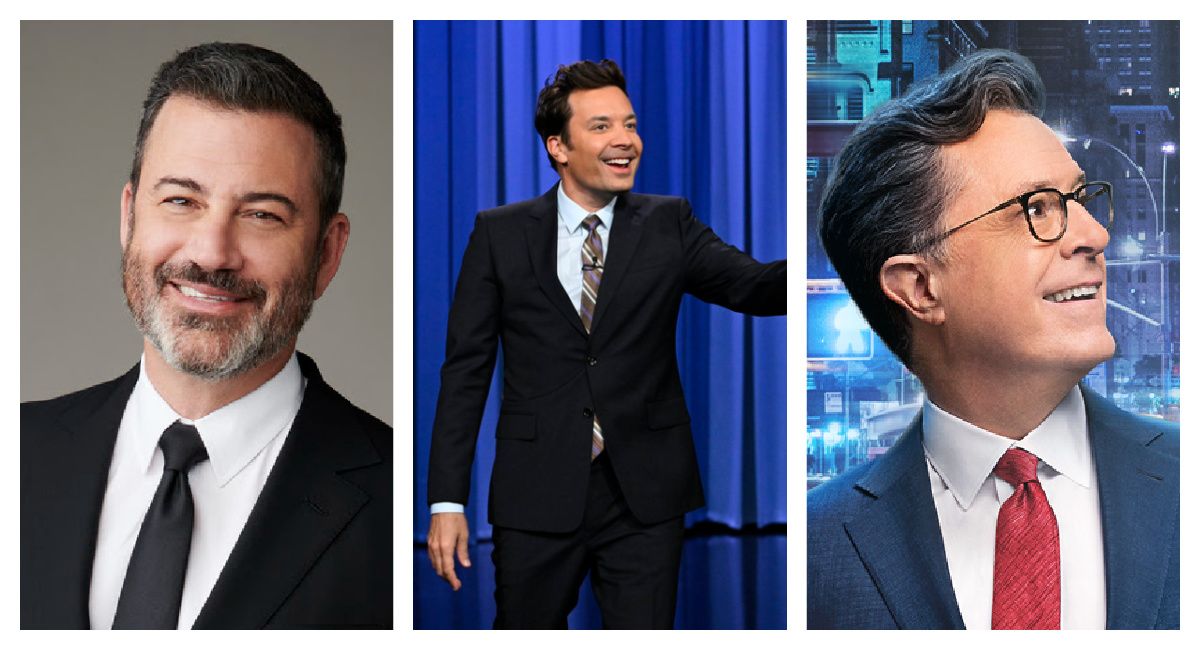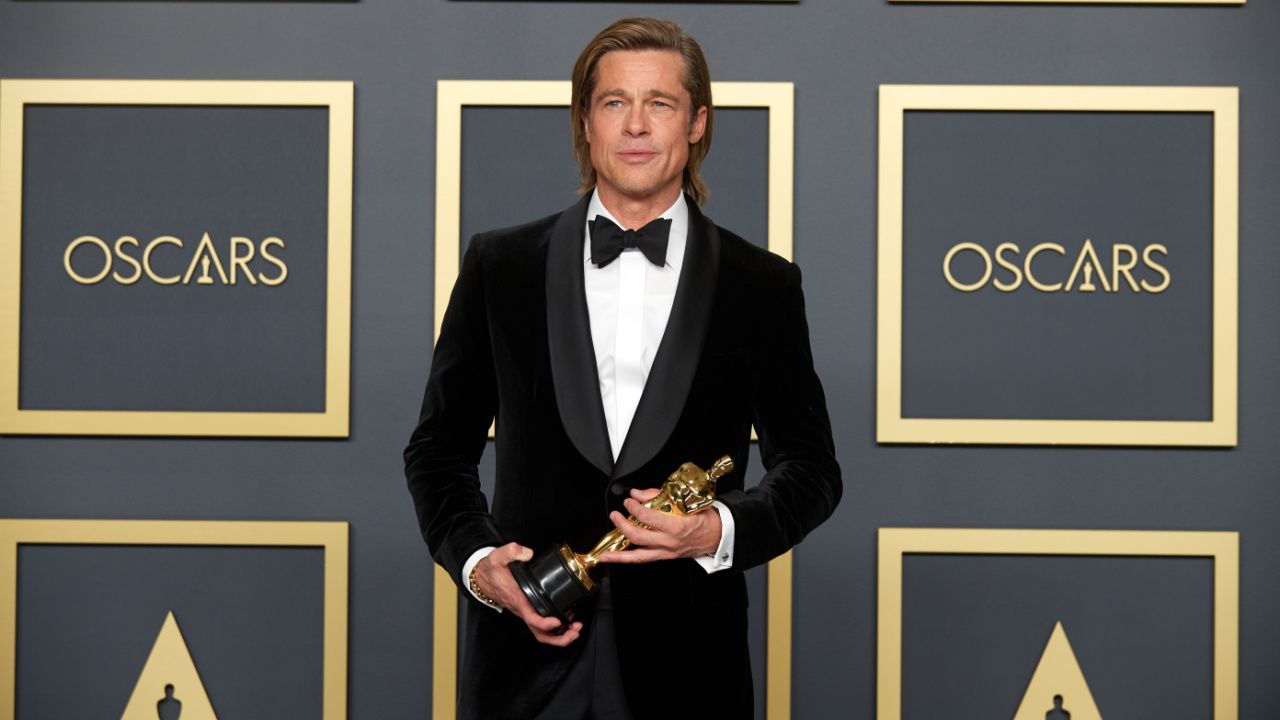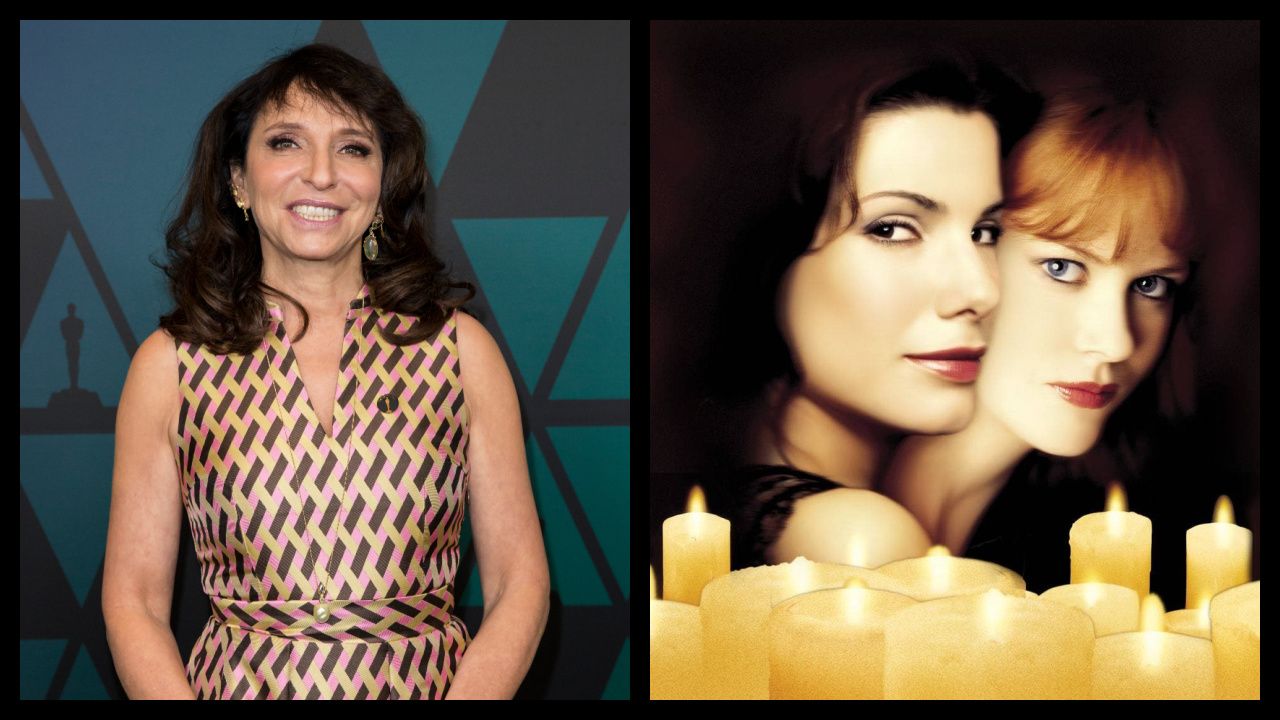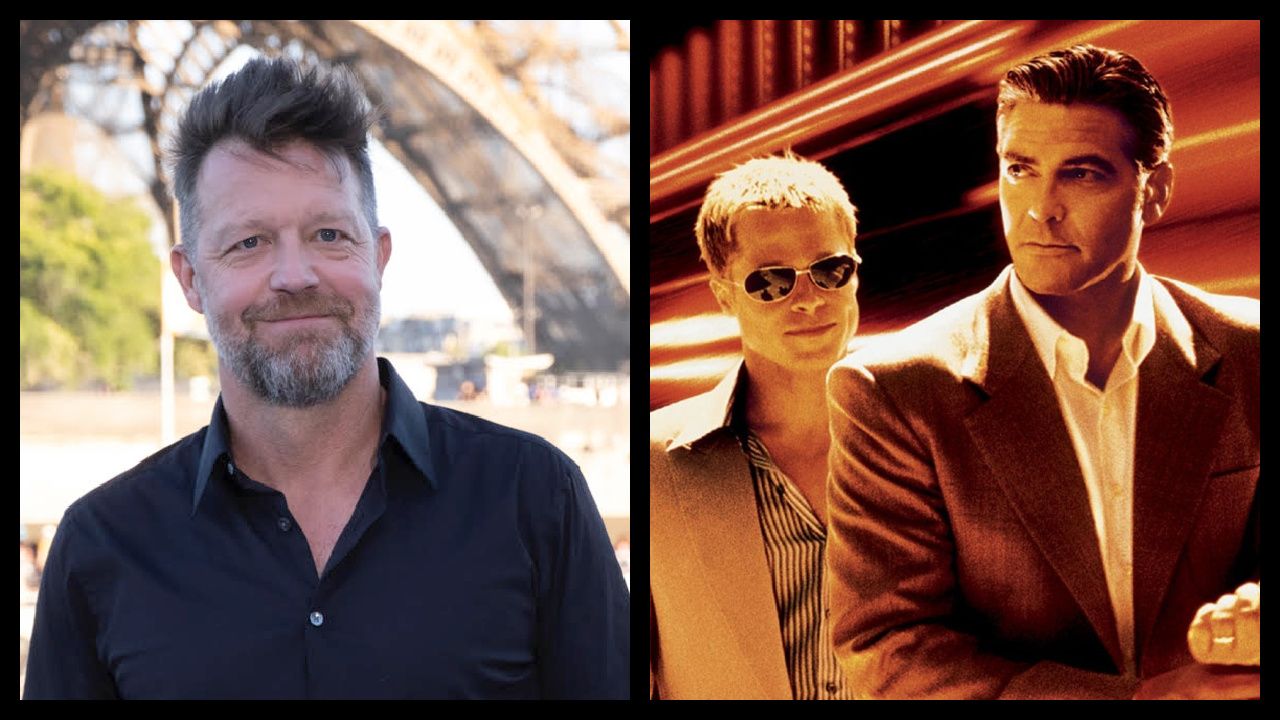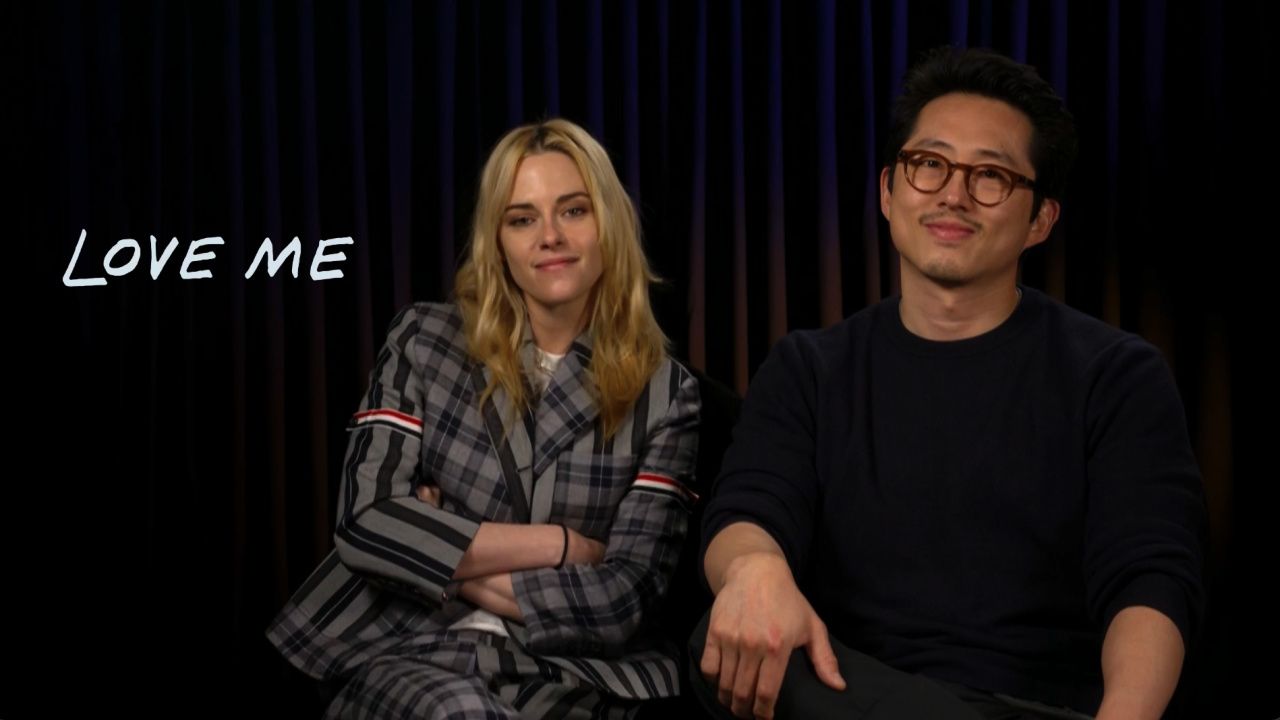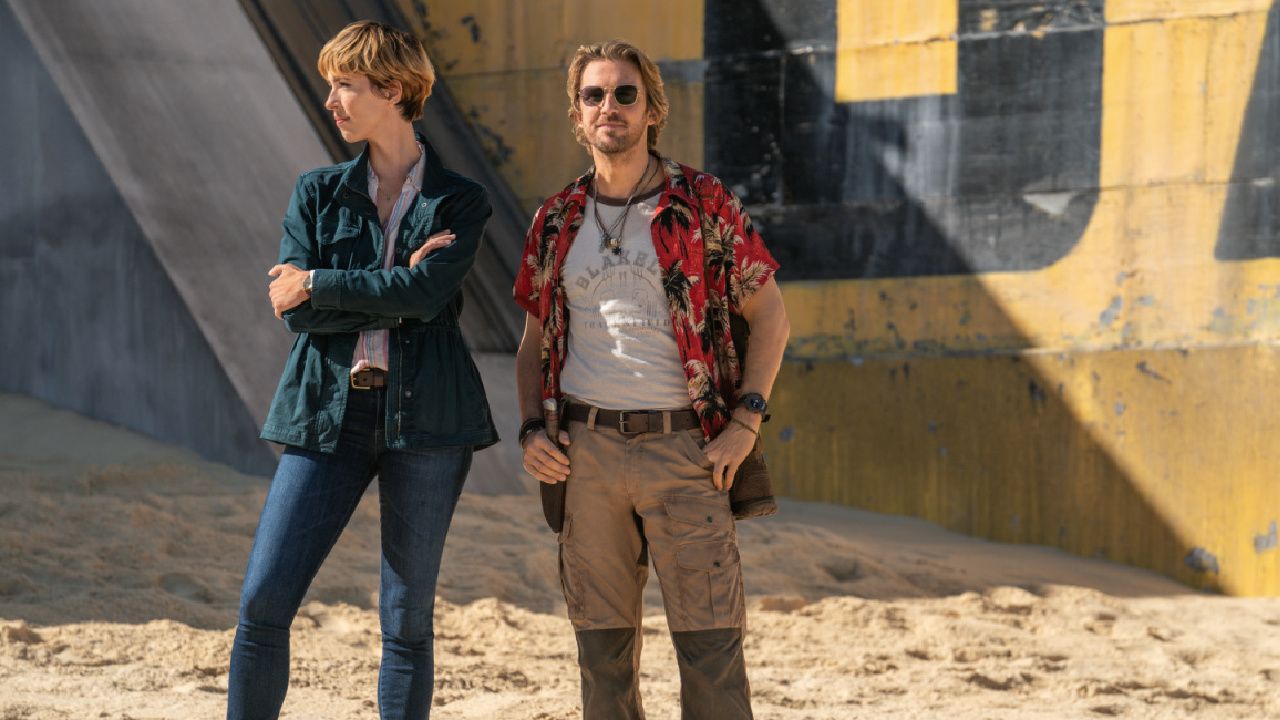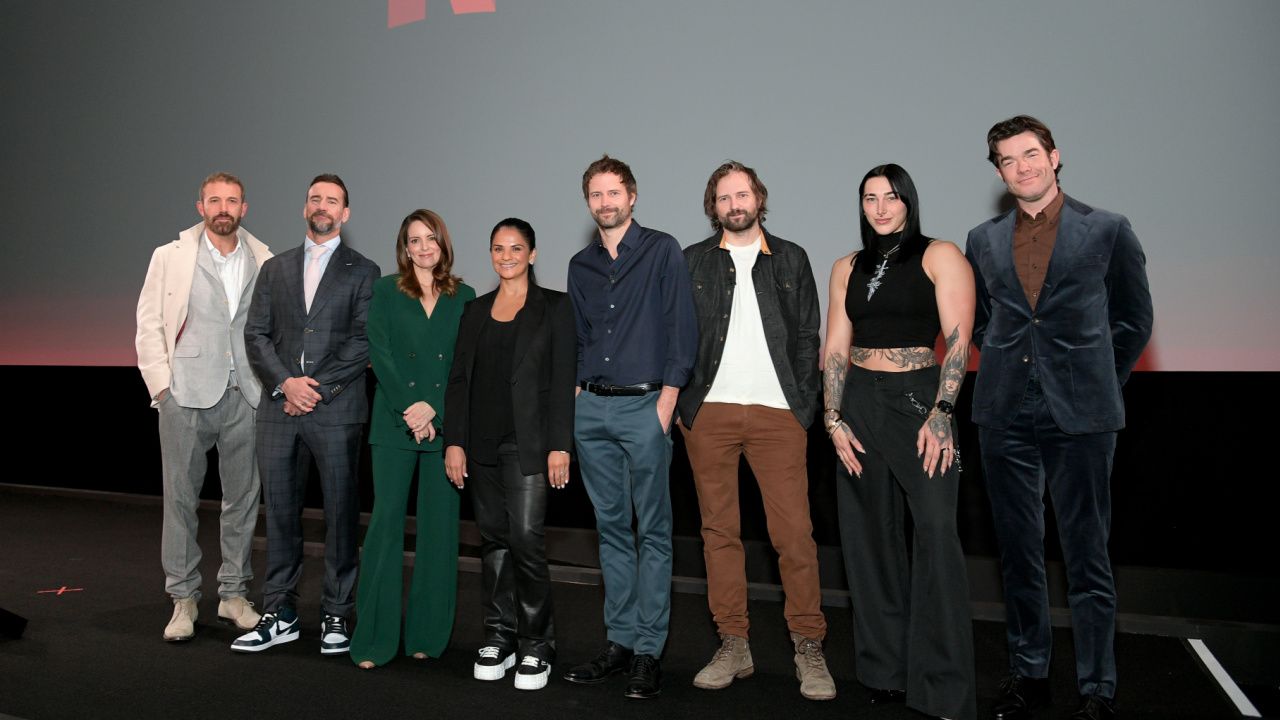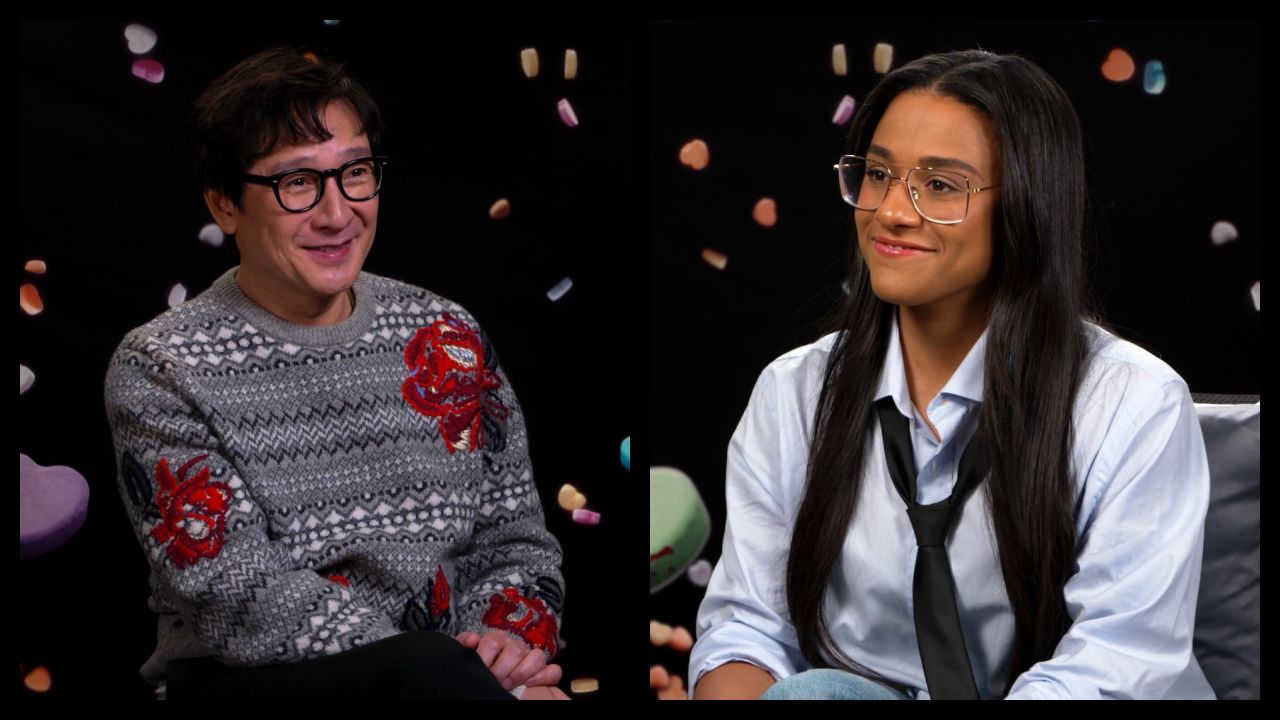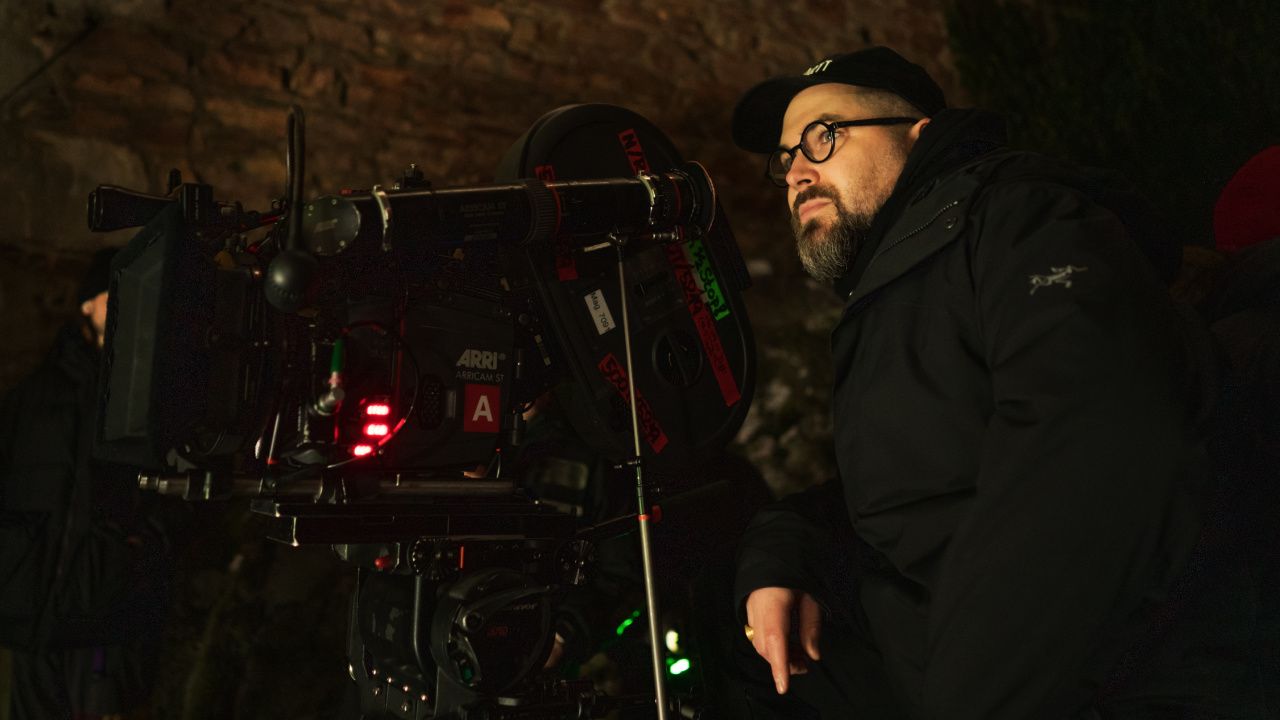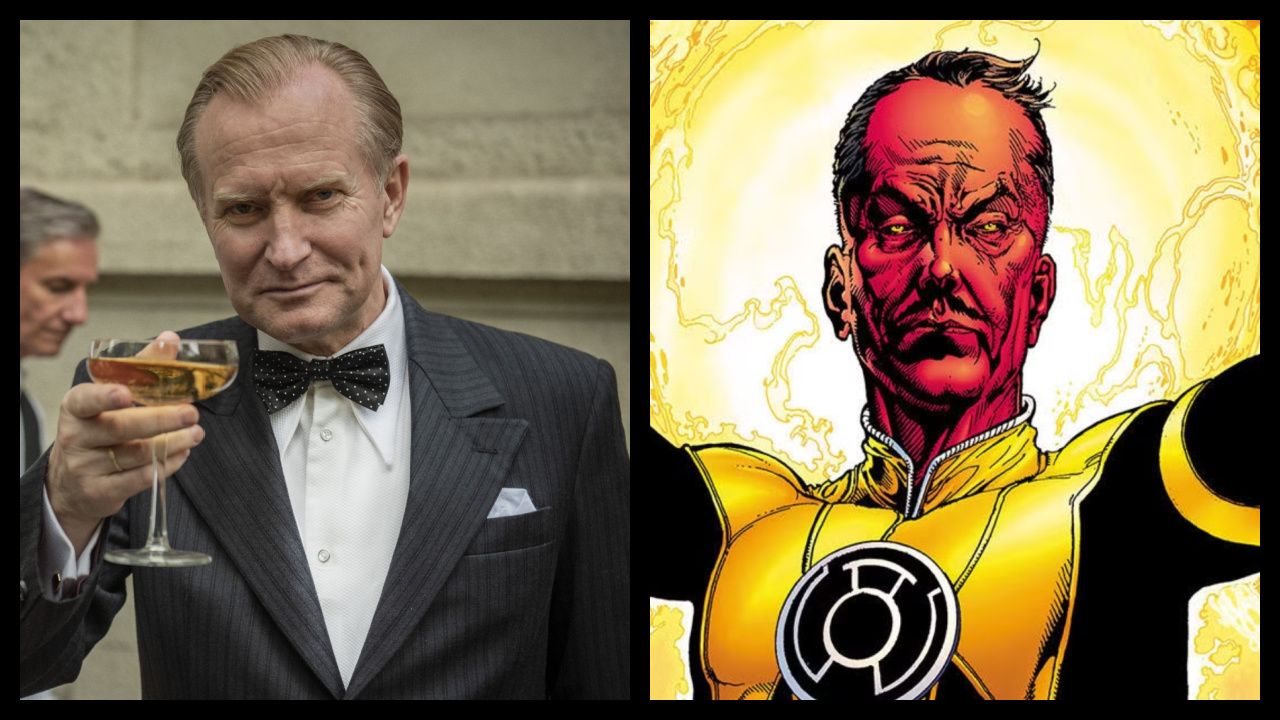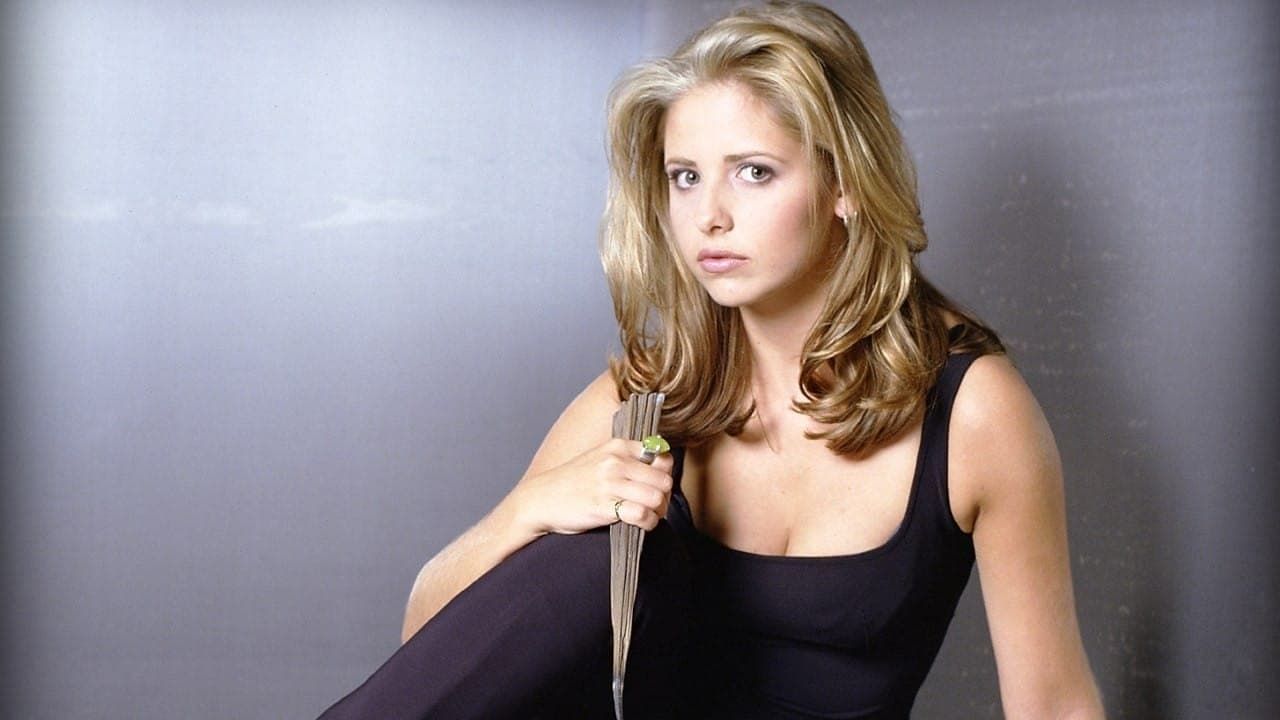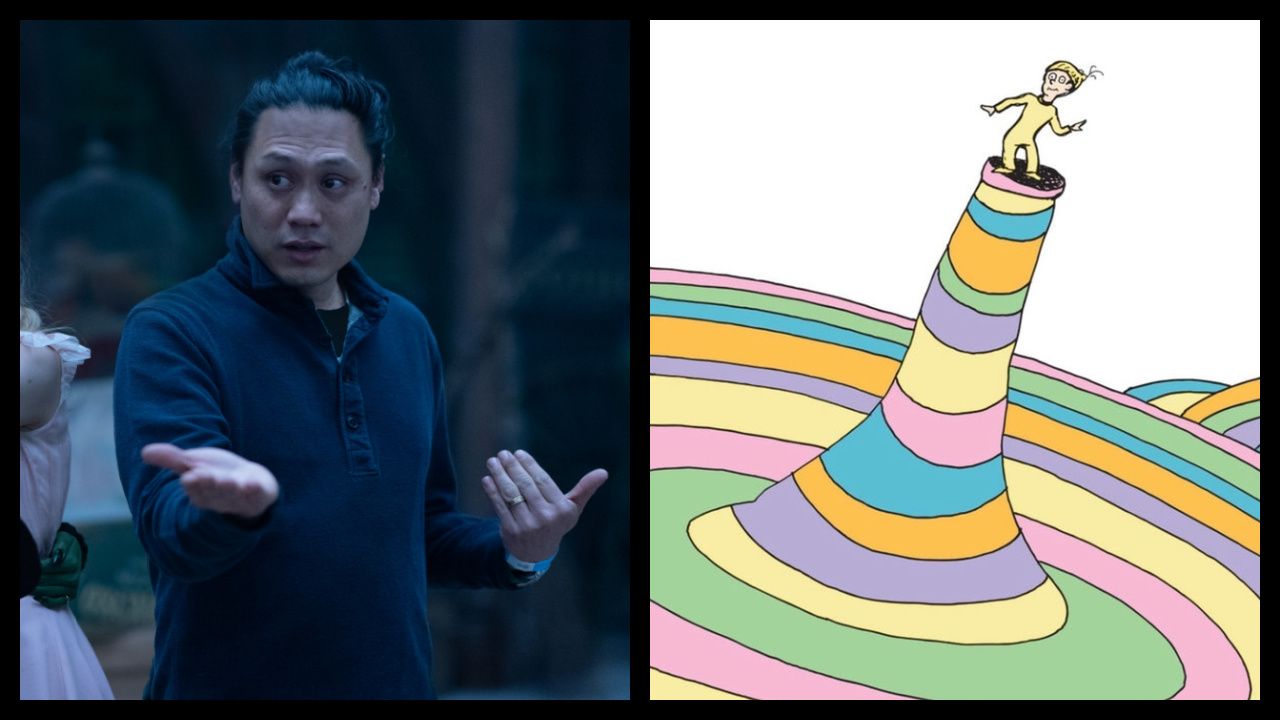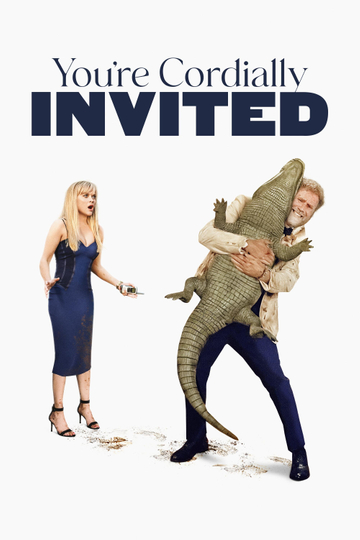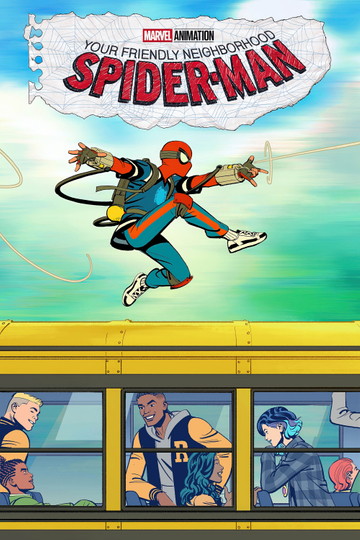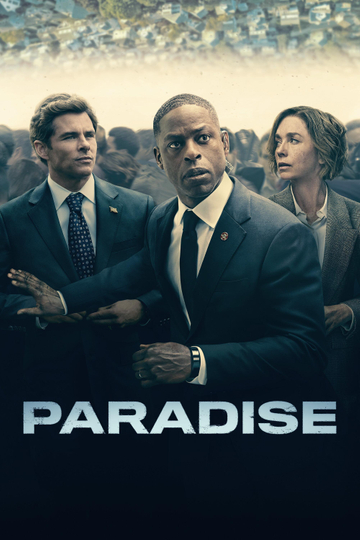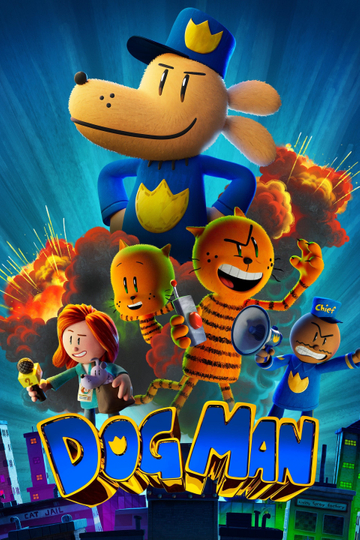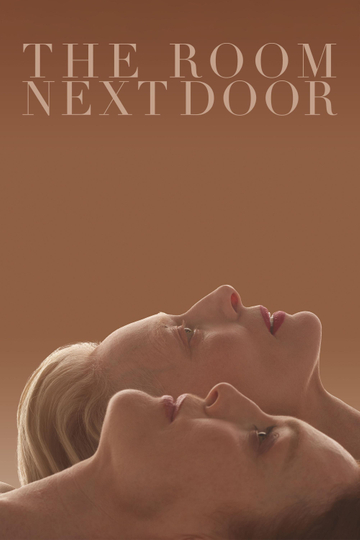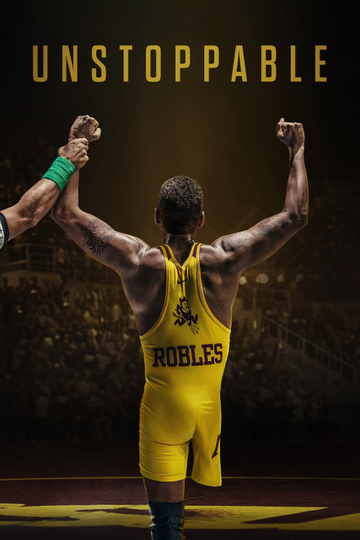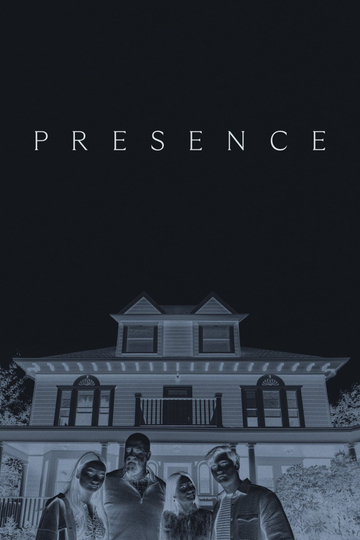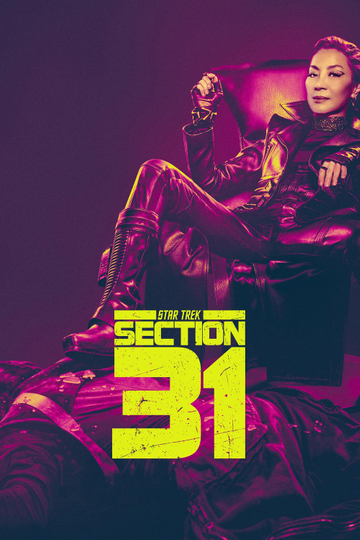'Training Day' Stars Bonded Over Real-Life Street Gang Encounters
They're not exactly playing a buddy-cop dynamic in their new CBS police drama "Training Day," but Bill Paxton and Justin Cornwell have already bonded off-screen after some edgy ride-alongs with real-life cops and a shared love of classic films.
The relationship between screen veteran Paxton -- who plays the morally ambiguous, ends-justify-the-means detective Frank Roarke in a street-level LAPD crime unit -- and emerging star Cornwell -- whose rookie cop Kyle Craig has been assigned to infiltrate Roake's team -- is hardly the uneasy alliance their characters share. Off screen, the two actors enjoy a relaxed chemistry they cultivated in both the back seats of police cars and shooting the breeze about their favorite movies in between scenes.
Paxton and Cornwell showed just how simpatico they are in a freewheeling chat with Moviefone, in which they recalled sharing some of their tensest moments researching in the streets of Los Angeles, and those performers that inspire them both -- including original "Training Day" film star Denzel Washington.
Moviefone: As actors, you do these ride-alongs with police to prep for roles like these. Tell me about those experiences -- not even necessarily for the research, but just what you're going through when things get a little freaky.
Justin Cornwell: For me, it was just keeping my wits about me and not showing any of that fear. I feel like if you've got that, they'll know it. I didn't want to be like, "Oh, I'm afraid to talk to this person because he's tatted out and he looks like he might ..."
Bill Paxton: This guy, Bob Deemer, he's been working out of Newton division for 28 years. I went out with him a few times. He knows everybody. First thing, he pulls us into a park, and there are these OGs there, hang out in the park, play dominos, drink those 40s and stuff. They all knew me from films and stuff like that.
Cornwell: "Weird Science"!
Paxton: Yeah, "Weird Science." We start talking to them, and then we went down another street, and there were these guys sitting out in front of a classic Hollywood stucco court. And he was saying, you know, "They did a drive by here. They shot about 100 rounds here. You can still see all the bullet holes and everything." You see this one guy, and Bob's in the car, he goes, "Yeah, man, you can tell: somebody's marinated."
Cornwell: "Baked"?
Paxton: Yeah, "He's baked." I don't know what he said -- whatever he said, it was weird. But it was weird because he was talking as if looking at this guy in the third person in a weird kind of way. Then he wants us to talk, and this guy wouldn't talk to us at all. We're seeing the other guys are kind of wary like, "What the hell is this?" And Bob tells them, "We're not here to roust you or bust you or anything. They're just actors and they want to talk to you." I was like, "Oh hey, Mr. Gangster! Me and my partner, we're actors."
"Help us workshop a scene."
Paxton: That makes me uncomfortable. I'm more the kind of guy that just kind of wants to just be the fly on the wall. I don't want to interact with these guys. It was interesting. Bob was using my celebrity in terms of breaking the ice. But he knows everybody there. These guys spend all their professional lives -- well, this guy did: 28 years in the same community. It's a big area. It's finite to them after a while. It was strange, but interesting stuff. Then we went over and those guys gave us those funky food, remember? Those Cambodian guys.
Cornwell: Yeah. Beef jerky.
Paxton: Yeah. That stuff was nasty! You're trying to eat it, kind of look like they're bonding with you. Again, it was cool that these Cambodian guys, ended up in this Bloods controlled neighborhood, and how they initially fought it out, but then earned each other's respect. Now they all interact. Some of the Cambodian guys are in Blood gangs and stuff like that. It's a whole other culture out there. It's tough. It's a hard part of town, man. Everything's barred. It's tough. I can't imagine what it would be like to be a cop every day like that.
How do you take what you see out there and apply it?
Paxton: This is what you do as an actor. You're asked to take on a role, so you've got to go out and see how that role in the real world exists and how it works. So it's skill of observation and research, then you add your imagination to that, and you build a character. And at the end of the day, you might find all kinds of stuff, great stuff, but that's not what they're doing in the show.
Cornwell: Sometimes, also, going back to script stuff, you said, "Hey man, I heard this really great piece of lingo that they use. We could use that in the show," and then it becomes a little more authentic.
Paxton: Yeah. "Hey, how'd that cop say that when he made that call?" That's the kind of stuff I'm making notes of. Just that stuff.
Cornwell: Devil's in the details.
Paxton: Yeah. That work helps give the actor conviction of character. When you're watching it, you believe that guy's in that world. Everybody works differently.
What's interesting about this take on "Training Day" is that there's so much middle ground to cover: It's not a story of Justin's character, Kyle, getting corrupted or Bill's character, Frank, getting redeemed just yet. They're sort of meeting in the middle, and we're going to see where this goes. Tell me what that means to you, to be able to go in any different direction at this stage in the game.
Cornwell: It's fun for me. I love being able to take a character and find out what he's doing. This is a brand-new situation for me. I've always done theater where my characters had a completed arc. You can imagine what they did, but you never really explored it. Here we get to explore that. We get to imagine what could happen.
Paxton: Look, it's a heightened reality. But we have to ground it so it's not so heightened that it's just like, "I can't buy this." Obviously, if we shot off that many rounds, and had that many round shot at us, I was saying, we would be not only Swiss cheese, but we'd be completely suspended or banned from working near any police force on any planet.
It's exciting stuff. It's Jerry Bruckheimer bringing that kind of "Top Gun" sensibility to an hour drama on CBS. I think, for CBS, it's kind of pushing the envelope a little bit. The networks, they've got to compete with a lot of good cable shows now that they never had to years ago. But when I said, I said something in there, I started to go off on it, I dig the idea of being in a populist show that is going out to places where they know they don't get any kind of elite TV package or anything. They can't afford it.
It's free TV stuff. Yeah, we're going to be selling a lot of Viagra and everything else. It'll get out there. These stories, at the end of the day, they have a moral. A lot of it is rough justice, but you have to sometimes fight fire with fire, and you have to stand up, and you've got to look out for the people who are your family. It's about loyalty and compassion, but also having to do the hard thing ... Here we've got a show that I feel is fun, it's entertaining, there's some moral issues involved, and let's go.
I'm sure you didn't imagine, when this project got off the ground, how polarized this country was going to be by the time the show comes out. Here we are now, and I'm watching the show thinking there's going to be a lot of people watching the show that are 100% with Bill from the first episode -- "You've got to get the job done" -- and the others are 100% with Justin going, "You've got to play by the rules."
Cornwell: I tell you, I saw the polarization. I've seen it my whole life.
Paxton: I'm sure you have. He came from Louisville, Kentucky. He's seen polarization.
Cornwell: So I felt like the show was doing something where it could service a lot of different communities. It wasn't just serving one side of that pole.
Paxton: You're right. These guys are integrating. They really are. They're working in an integrated world, which a lot of people need to get with the program. Look, not getting into politics and all that. At the end of the day, is it entertaining? Is it at all informative? Is there a moral to it? It is a weird time. It sure as hell is.
Is there a moment when you guys realized you found your level together? You're going to be in this for the long haul, presumably.
Cornwell: I know the moment, for me. The exact moment. We were at the table reading. It was the first time I met you. We didn't test. We didn't do any camera reads. It was at the table read, and I had memorized this speech, it was from the audition. And so I gave it to you off book at the table read, and you kind of had memorized your response, and you gave it to me back. And we had a moment where we had another line we forgot to look at the page. We had connected. That was the moment for me. I was just like, "This is going to be fun."
Paxton: Yeah. We've become good friends from this experience, because it's an intense experience. You either bond fiercely, or it's like, "Just let me out of here!" He's a first class guy. He really is. He comes prepared to work, he wants to do a good job, there's no bullshit, actor bullshit. It's, how do we make this better? That's all I'm about man, at the end of the day. We want to make good work, and that's it.
Bill's got some pretty classic movies of his own on his resume. Justin, did you have a thought or feeling about Bill in your head that you had to get over the first time you met him?
Cornwell: I told him a lot on the pilot that it was a big honor to work with him. Every single day, working on the show was a big honor. But you have to understand, being the movie-head that I was and that my family is, it was like doing a job with your uncle or something you've been watching your whole life.
Paxton: Very quickly, too, he could see. I struggled to get through my day as far as trying to get it right.
Cornwell: Demystified himself!
Paxton: Yeah, I completely demystified myself pretty quick. Some of these speeches are tough. You're trying to find them and doing them. But one thing is that he got from me -- and we never talked about this -- is you see I never throw in the towel. I keep going. And he does too. It's a hard schedule. Just getting your rest and being ready for the next day. Obviously, if you're rubbery on the stuff, it's going to be a hard day for you.
Cornwell: It's a fight. But those days, some days when you're on, I'm on, it's just a great day. Smooth day, we got rest the night before. I think that's the hardest part is sleep.
Bill, who was somebody that was an icon in your head that you worked with or encountered that was like, "Whoa!" And then you got to see what he or she was as a person?
Most of them I never really got to see what they're really like. Jack Nicholson was the guy that I boiled down from. Jack -- and why he's so entertaining to watch -- was he doesn't just portray the character, but he relishes the portrayal. And in that relish, you as the audience are kind of relishing it, too. I try to bring that relish to Frank.
And Denzel of course. Nobody can shuck and jive and f*ck around [like him] -- and I worked with Denzel on "2 Guns" a couple years ago. I do my biggest scene in the movie with Denzel my first day. I was ready. It was a movie part, so I had time to prepare the role. But again, this guy would throw stuff into the scene as we started improvising a little bit. And boy, he's quick. He's fast. His mind is agile.
Do you remember the first time you saw the movie "Training Day"?
Cornwell: Yes!
Paxton: That's, like, his second favorite film.
Tell me how it hit you. I've seen a million movies, but that hit me like a freight train.
Cornwell: I watched it with my family for the first time. Being movie people, my family is the kind of family that watches all the movies. It doesn't matter what's in the movie. We'll sit down as a family and watch that movie. When we watched it as a movie, it was just like, "Oh my God, did not see that coming!" Denzel, to African Americans, to anybody really, is this heroic guy. He automatically becomes a hero when you put him on screen. It's like, "Oh my God, there's Denzel."
Paxton: I hear you.
Cornwell: That's what it is. So once he's on the screen, "Yes, Denzel ... What's he doing? No!" That's what it becomes. You felt like you were betrayed by everybody who made that movie. Then you had to watch it again. Then you realize that this is a masterpiece.
They knew what they were doing when they cast Denzel. Not only was he a great actor, he was an actor that people had already loaded their preconceived conceptions of what he does and who he plays inside of him. So when he comes into this character, they see it's Denzel, but they didn't have to suspend disbelief, by the end of the movie, you forget it's Denzel. It becomes Alonzo Harris.
That's the magic trick, to be in front of somebody and be somebody else. And Denzel can do that, even when he's already Denzel. He already has so much weight on him, already an Oscar for "Glory" and all these other movies. He can still take it off and put it back on.
"Training Day" airs Thursdays on CBS.












